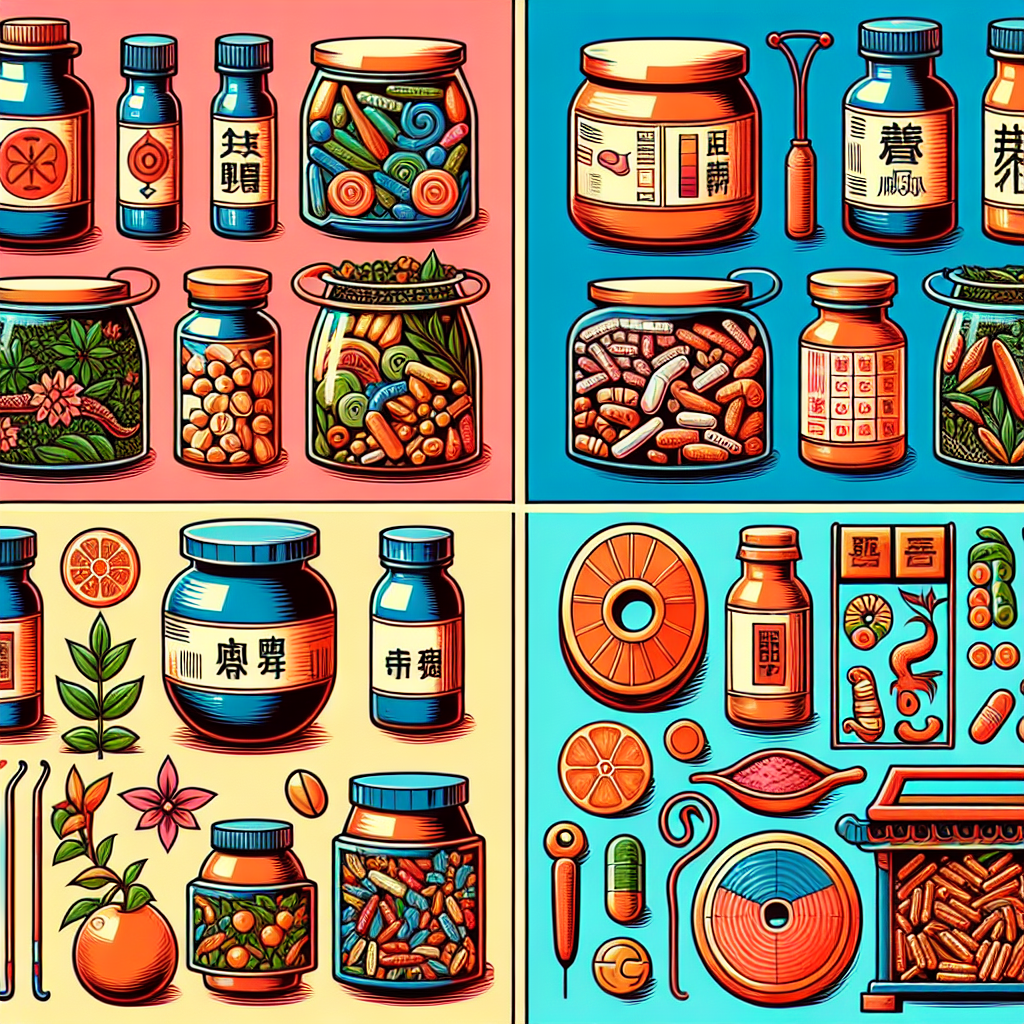Vitamins in Ayurvedic and Traditional Chinese Medicine

Discover the power of vitamins in Ayurvedic and Traditional Chinese Medicine. Unleash your body’s potential with natural healing. Visit My Vibrant Vitality now.
Exploring the Role of Vitamins in Ayurvedic Medicine
Vitamins are essential nutrients that our bodies need in small amounts to function properly. They play a crucial role in maintaining our health and wellbeing, and their deficiency can lead to various health problems. In this context, it is interesting to explore the role of vitamins in Ayurvedic medicine, a holistic healing system that originated in India over 3,000 years ago.
Ayurveda, which translates to “science of life,” is a comprehensive system of medicine that emphasizes the interconnectedness of the body, mind, and spirit. It seeks to promote health and prevent disease through a balanced diet, lifestyle modifications, and the use of medicinal herbs. While Ayurveda does not explicitly mention vitamins, it recognizes the importance of a balanced diet rich in various nutrients for maintaining health and preventing disease.
In Ayurveda, food is considered medicine, and a balanced diet is one that includes all six tastes: sweet, sour, salty, bitter, pungent, and astringent. Each taste corresponds to different types of nutrients, and a balanced diet ensures that the body gets a variety of nutrients, including vitamins. For instance, sweet foods like grains, dairy, and sweet fruits are rich in vitamins B and C, while bitter foods like leafy greens and turmeric are high in vitamins A, C, and K.
Moreover, Ayurveda emphasizes the importance of proper digestion and absorption of nutrients. According to Ayurvedic principles, even if you consume a nutrient-rich diet, you won’t benefit from it if your digestion and absorption are poor. Therefore, Ayurveda recommends various practices to enhance digestion and absorption, such as eating mindfully, chewing food thoroughly, and avoiding overeating.
Ayurveda also uses medicinal herbs that are rich in vitamins. For example, Amalaki or Indian gooseberry, a key ingredient in many Ayurvedic formulations, is one of the richest sources of vitamin C. Similarly, Ashwagandha, another popular Ayurvedic herb, is rich in vitamin C and other nutrients.
Now, let’s turn our attention to Traditional Chinese Medicine (TCM), another ancient healing system that has a similar holistic approach to health. Like Ayurveda, TCM does not explicitly mention vitamins but recognizes the importance of a balanced diet for health and wellbeing.
In TCM, foods are categorized into five flavors: sweet, sour, bitter, pungent, and salty. Each flavor corresponds to different types of nutrients and has different effects on the body. For instance, sweet foods like grains and fruits are considered nourishing and are rich in various vitamins.
Moreover, TCM also uses medicinal herbs that are rich in vitamins. For example, Goji berries, a popular TCM herb, are packed with vitamins A and C. Similarly, Astragalus, another commonly used TCM herb, is rich in various nutrients, including vitamins.
In conclusion, while Ayurveda and TCM do not explicitly mention vitamins, they recognize the importance of a balanced diet rich in various nutrients for maintaining health and preventing disease. They also use medicinal herbs that are rich in vitamins. Therefore, these ancient healing systems can provide valuable insights into the role of vitamins in health and wellbeing.
Understanding the Importance of Vitamins in Traditional Chinese Medicine

Vitamins are essential nutrients that our bodies need in small amounts to function properly. They play a crucial role in maintaining our health and wellbeing, and a deficiency in any one of them can lead to serious health problems. While modern medicine has made significant strides in understanding the importance of vitamins, traditional systems of medicine like Ayurveda and Traditional Chinese Medicine (TCM) have long recognized their value.
Traditional Chinese Medicine, a holistic system of health and healing that has been in practice for over 2,000 years, places a strong emphasis on the importance of vitamins. TCM practitioners believe that a balanced diet is the cornerstone of good health, and that vitamins, along with other nutrients, are key to achieving this balance. They view vitamins not just as individual compounds with specific health benefits, but as integral parts of a complex, interconnected system that supports overall health and wellbeing.
In TCM, the concept of balance is central to understanding the role of vitamins. The body is seen as a delicate balance of Yin and Yang, two opposing but complementary forces. When this balance is disrupted, illness can occur. Vitamins, along with other nutrients, are believed to help maintain this balance by nourishing the body and supporting its vital functions.
For example, Vitamin C, known in TCM as “sour flavor,” is associated with the Wood element and the Liver organ system. It is believed to have a cooling effect on the body and to promote the smooth flow of Qi, or vital energy. Similarly, Vitamin D, or “bitter flavor,” is associated with the Fire element and the Heart organ system. It is thought to have a warming effect and to support the body’s defenses against illness.
In addition to their role in maintaining balance, vitamins are also used in TCM to treat specific health conditions. For instance, Vitamin A, or “sweet flavor,” is often used to support eye health and to treat conditions like night blindness and dry eyes. Vitamin E, or “pungent flavor,” is used to nourish the skin and to promote wound healing.
While the understanding of vitamins in TCM may differ from that of modern medicine, there is a growing body of scientific evidence that supports the traditional uses of these nutrients. Studies have shown that vitamins can indeed support overall health and wellbeing, and that they can play a role in preventing and treating a wide range of health conditions.
In conclusion, vitamins play a crucial role in Traditional Chinese Medicine. They are seen not just as individual compounds with specific health benefits, but as integral parts of a complex, interconnected system that supports overall health and wellbeing. Whether you’re interested in TCM for its holistic approach to health, or you’re simply looking for ways to improve your diet and lifestyle, understanding the importance of vitamins can be a valuable step on your journey to better health.
Comparative Study of Vitamins in Ayurvedic and Traditional Chinese Medicine
Vitamins are essential nutrients that our bodies need in small amounts to function properly. They play a crucial role in maintaining our overall health and wellbeing. Interestingly, the concept of vitamins is not new. It has been a part of traditional medicinal systems like Ayurveda and Traditional Chinese Medicine (TCM) for centuries.
Ayurveda, a 5000-year-old Indian system of medicine, and TCM, with its roots in ancient China, both emphasize the importance of a balanced diet for maintaining good health. However, the understanding and application of vitamins in these two systems are quite different from the modern concept of vitamins.
In Ayurveda, the concept of vitamins is not explicitly mentioned. Instead, it focuses on the nutritional value of food and its impact on the three doshas – Vata, Pitta, and Kapha. These doshas are the biological energies found throughout the human body and mind, and they govern all physical and mental processes. Ayurveda believes that an imbalance in these doshas leads to disease. Therefore, it emphasizes consuming a balanced diet that includes all six tastes – sweet, sour, salty, bitter, pungent, and astringent – to maintain the balance of the doshas. Each taste corresponds to different types of nutrients, including vitamins. For instance, sweet foods like grains, dairy, and fruits are rich in vitamins B and C, while bitter foods like leafy greens are high in vitamins A, C, and K.
On the other hand, TCM does not directly refer to vitamins but uses a similar concept known as ‘vital substances.’ These vital substances include Qi (energy), Blood, Yin, Yang, and Body Fluids. TCM believes that a deficiency or imbalance in these vital substances leads to illness. To maintain the balance of these substances, TCM recommends a diet rich in ‘Qi nourishing’ foods. These foods, such as fruits, vegetables, and whole grains, are naturally rich in vitamins. For example, Chinese yam, a commonly used food in TCM, is rich in vitamins B, C, and E.
Despite the differences in their approach, both Ayurveda and TCM recognize the importance of vitamins in maintaining health and preventing disease. They both advocate for a balanced diet rich in a variety of foods to ensure an adequate intake of all essential nutrients, including vitamins.
However, it’s important to note that while Ayurveda and TCM have a holistic approach to health, they do not replace the need for modern medicine. They should be used as complementary therapies alongside conventional treatments.
In conclusion, the concept of vitamins, as we understand it today, has been a part of traditional medicinal systems like Ayurveda and TCM for centuries. Although they do not explicitly mention vitamins, they emphasize the importance of a balanced diet rich in a variety of foods to ensure an adequate intake of all essential nutrients. This approach aligns with modern nutritional science, which also advocates for a balanced diet to meet our vitamin needs. Therefore, incorporating the principles of Ayurveda and TCM into our daily lives can help us maintain our health and wellbeing.